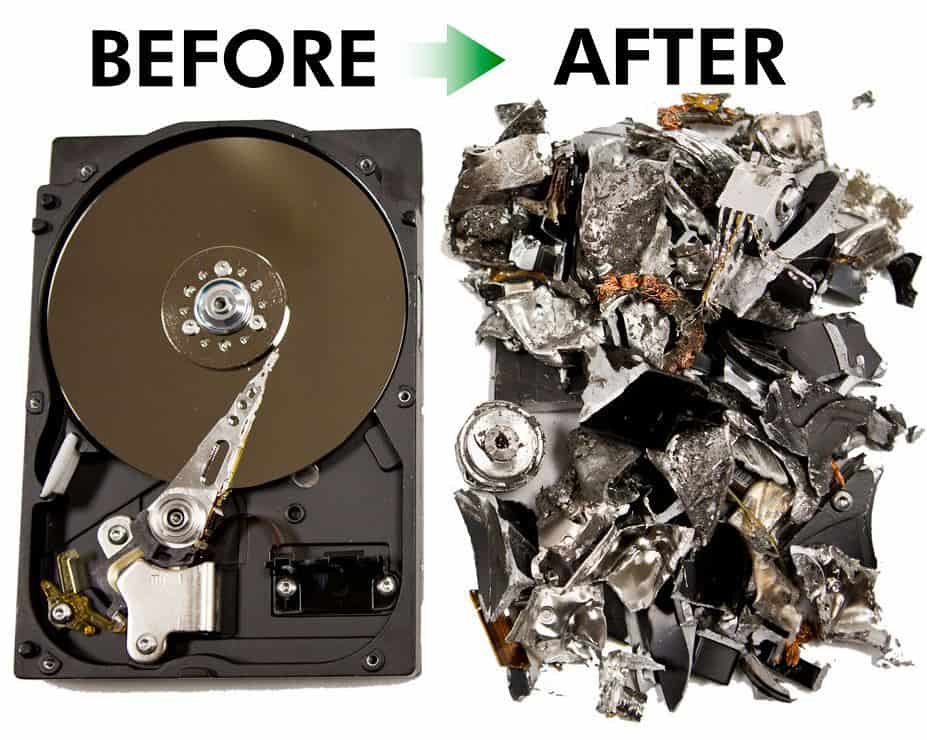Understanding the Role of Data Destruction in Conditioning Cyber Security Defenses
Understanding the Role of Data Destruction in Conditioning Cyber Security Defenses
Blog Article
The Important Nature of Information Destruction in Upholding Computer Security Services and Protecting Against Unauthorized Gain Access To
In a period where information violations and identification burglary are significantly prevalent, the significance of effective data devastation can not be overemphasized. Organizations should recognize that the failing to properly dispose of delicate details postures not only lawful and financial threats however additionally a potential disintegration of client trust fund. Numerous techniques, from data wiping to physical devastation, work as essential safeguards versus unapproved accessibility. Recognizing the ramifications of data damage practices and conformity with regulations elevates vital questions about the competence of present strategies and their long-lasting viability in the face of progressing risks.
Importance of Data Destruction
In an increasingly electronic world, the value of information devastation can not be overemphasized. As companies collect large amounts of delicate details, the potential consequences of falling short to appropriately take care of and get rid of of that information come to be increasingly extreme. Information breaches, identification theft, and company reconnaissance present substantial risks, emphasizing the need of reliable data damage methods.

Additionally, as technology advances, so as well do the techniques through which destructive stars seek to exploit delicate info. Organizations must stay positive and watchful in their data damage methods to safeguard against these advancing dangers. By focusing on information destruction, business not just protect their possessions but additionally foster count on among stakeholders and customers, showing a commitment to responsible data monitoring and security practices.
Approaches of Effective Information Damage
To make certain the full and irreversible devastation of delicate data, companies can use a variety of reliable approaches customized to their particular needs. Among the most common methods is information wiping, which entails making use of specialized software application to overwrite existing information several times, making recovery virtually impossible. This is particularly beneficial for solid-state drives and tough drives, where conventional deletion methods are inadequate.
One more reliable technique is degaussing, which makes use of solid magnetic areas to disrupt the magnetic domain names on storage space media, providing the information irretrievable. This approach is specifically matched for magnetic storage space tools, such as disk drive and hard drives.
Physical devastation is also a practical alternative, entailing the shredding, crushing, or incineration of storage devices. This method assurances that data can not be recouped, making it suitable for companies taking care of very sensitive information.

Conformity With Information Defense Laws
Organizations should not just concentrate on efficient information damage techniques but additionally ensure conformity with data defense policies that govern just how delicate details is dealt with and taken care of. Sticking to these regulations is vital for safeguarding personal information and keeping consumer trust fund. Rules such as the General Data official statement Defense Guideline (GDPR) in the European Union and the Medical Insurance Transportability and Responsibility Act (HIPAA) in the United States enforce stringent standards on data administration, which include demands for the safe and secure disposal of delicate details.
To achieve compliance, organizations must implement detailed information destruction plans that align with these legal frameworks. This consists of determining data that calls for devastation, click establishing methods for protected methodsâEUR" such as shredding physical media or utilizing software that fulfills market standards for information wipingâEUR" and preserving in-depth documents of destruction tasks. Normal audits should be performed to make sure adherence to these plans and to identify any kind of potential locations for enhancement.
Failing to abide by information defense guidelines can bring about substantial legal ramifications, including hefty fines and damage to an organization's track record. Integrating conformity into information damage techniques is not just a legal obligation however additionally a crucial component of a robust details safety and security strategy.
Consequences of Poor Data Handling
Poor information handling can cause serious effects that expand past instant functional problems. Organizations may face significant monetary losses as a result of data breaches, which typically lead to pricey removal efforts, legal fees, and regulatory penalties. These financial effects can prevent and stress sources growth, eventually affecting an organization's bottom line.
Furthermore, bad information handling can drastically harm a company's track record. Partners, clients, and stakeholders might lose trust fund in an entity that fails to protect sensitive information, leading to reduced customer loyalty and potential loss of business possibilities. This disintegration of trust can take years to reconstruct, if it can be restored at all.
In addition, companies can encounter legal ramifications arising from non-compliance with data protection laws. Such infractions might result in investigations and fines, worsening the financial burden and more tainting the company's image.
In the realm of cybersecurity, poor information monitoring practices can develop susceptabilities that make systems more prone to unauthorized accessibility and cyberattacks. Ultimately, these effects emphasize the important importance of executing robust information handling procedures to protect sensitive details and preserve business integrity.
Finest Practices for Secure Data Disposal


To start with, data need to be identified according to its level of sensitivity. Sensitive information needs much more strenuous disposal techniques, such as shredding physical papers and utilizing innovative software for digital information wiping. Using licensed data destruction services ensures compliance with sector regulations and requirements.
Secondly, companies ought to carry out a data disposal plan that mandates normal audits. This policy should lay out the treatments for data retention and devastation, making certain that obsolete information is gotten rid of without delay and firmly. Educating staff members on these methods is necessary to promoting a society of safety and security awareness.
Lastly, keeping detailed records of disposed information improves responsibility and offers a clear audit route. This documents needs to include the kind of information ruined, the method made use of, and the day of disposal.
Verdict
Embracing robust methods such as information cleaning, degaussing, and physical damage, together with conformity with laws like GDPR and HIPAA, is essential for protecting delicate information. Disregarding correct data disposal practices can lead to severe effects, consisting of data violations and legal effects.
In a period where information violations and identity theft are increasingly widespread, the relevance of effective information destruction can not be overemphasized. data destruction. Data violations, identification burglary, and business reconnaissance pose significant dangers, highlighting the necessity of effective data devastation methods
Compliance with guidelines such as GDPR and HIPAA requireds that organizations execute strict data protection steps, including the safe and secure destruction of data at the end of its lifecycle.
By prioritizing information destruction, business not just protect their properties however additionally foster trust fund amongst stakeholders and clients, demonstrating a dedication to liable data management and security practices.
Organizations must not just concentrate on reliable information destruction methods yet additionally make sure conformity with data protection regulations that regulate exactly how sensitive info is managed and disposed of.
Report this page